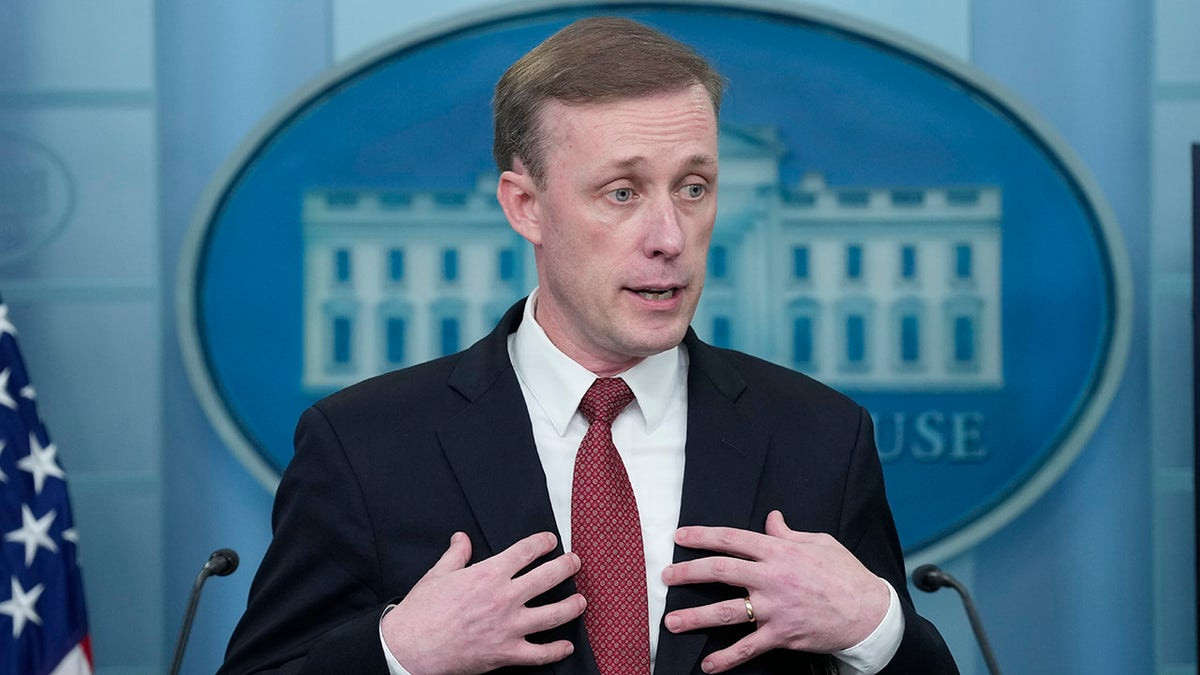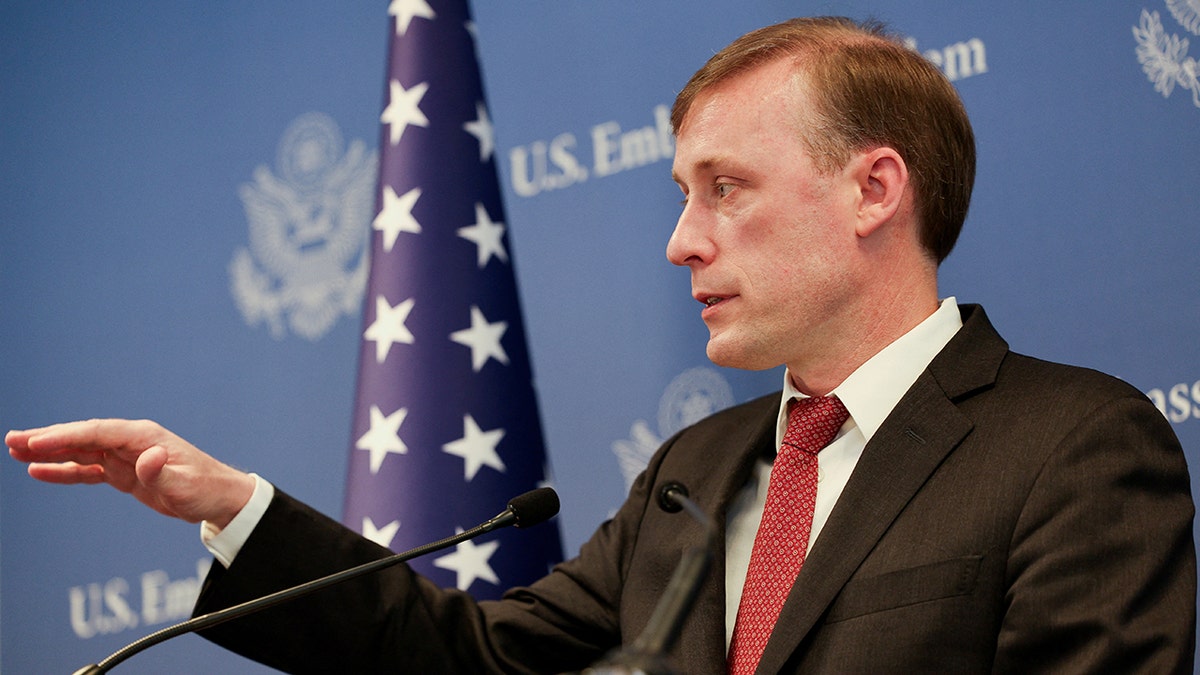
National security adviser Jake Sullivan reportedly offered to resign from President Biden’s administration after the botched withdrawal from Afghanistan in 2021, according to the Washington Post’s David Ignatius.
Ignatius, a Washington Post columnist, spoke to Sullivan and several of his colleagues as the Biden administration nears its end.
Several of Sullivan’s colleagues reportedly told Ignatius that Sullivan offered to resign, and President Biden insisted the national security adviser stay on, according to the report.
Ignatius reported that the Afghanistan withdrawal “broke the early comity” of the Biden administration’s national security team, and created a riff between Sullivan and Secretary of State Antony Blinken.

White House national security adviser Jake Sullivan speaks during the daily briefing at the White House in Washington, Wednesday, May 22, 2024. (AP Photo/Susan Walsh)
The 2021 withdrawal claimed the lives of more than a dozen American service members and led to the Taliban retaking control of the war-torn nation.
“You cannot end a war like Afghanistan, where you’ve built up dependencies and pathologies, without the end being complex and challenging,” Sullivan told the Washington Post columnist. “The choice was: Leave, and it would not be easy, or stay forever.”
Sullivan added, “leaving Kabul freed the [United States] to deal with Russia’s invasion of Ukraine in ways that might have been impossible if we had stayed.”
CLICK HERE FOR MORE COVERAGE OF MEDIA AND CULTURE

U.S. National Security Advisor Jake Sullivan speaks during a press briefing, amid the ongoing conflict between Israel and the Palestinian Islamist group Hamas, in Tel Aviv, Israel, December 15, 2023. REUTERS/Violeta Santos Moura (Reuters//Violeta Santos Moura)
Ignatius wrote that the Pentagon resisted Biden’s call to remove all U.S. troops from Afghanistan and argued in favor of “a residual force of 2,500 in Kabul.”
Sullivan reportedly initially shared the Pentagon’s concerns, Ignatius wrote, citing two close advisers.
However, he set out to “loyally” uphold Biden’s plan to completely withdraw.
Wall Street Journal national security reporter Alex Ward, who wrote “The Internationalists,” a book about the president’s foreign policy team, noted that the advisers he spoke to for the book said no one offered to resign.
CLICK HERE TO GET THE FOX NEWS APP
The White House and the National Security Council did not immediately return requests for comment.
Sulllivan evaluated his performance towards the end of the interview with Ignatius.
“Are our alliances stronger? Yes. Are our enemies weaker? Yes. Did we keep America out of war? Yes. Did we improve our strategic position in the competition with China while stabilizing the relationship? Yes. Did we strengthen the engines of American economic and technological power? Yes,” he said.